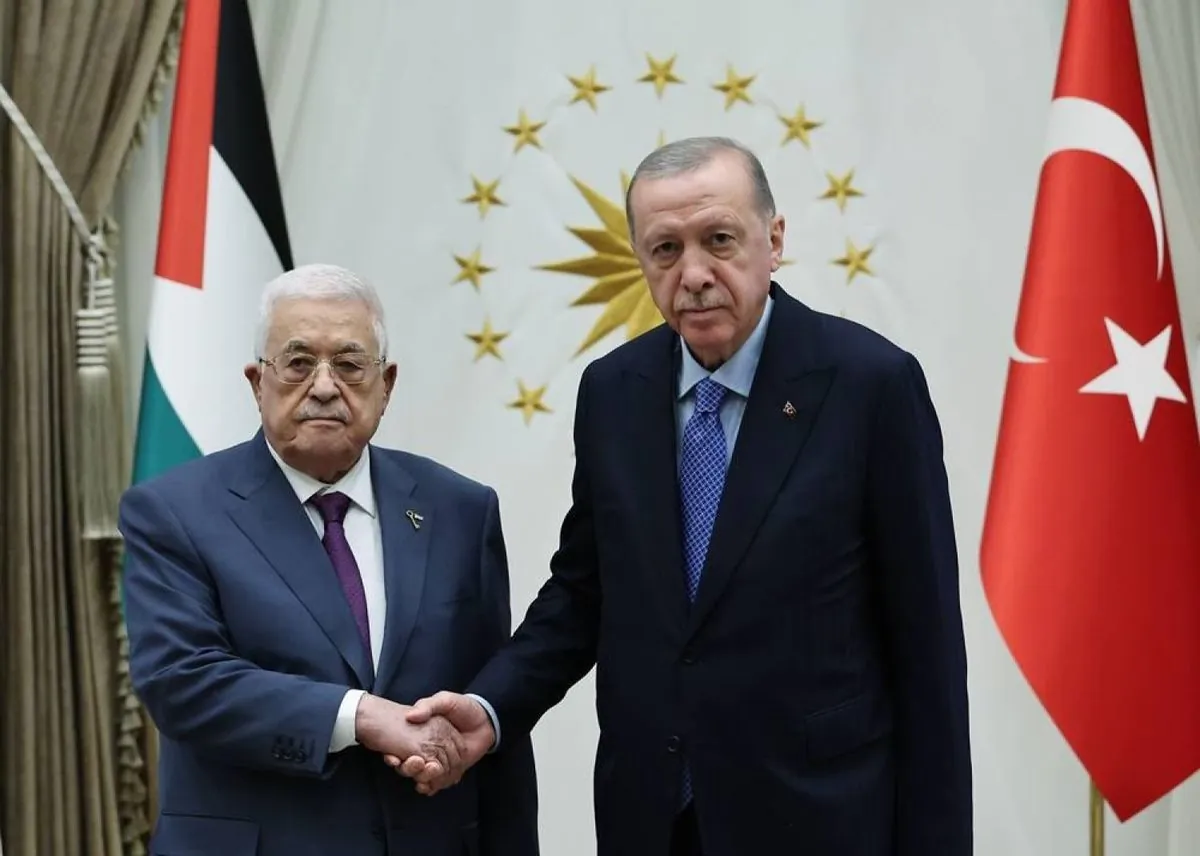Erdogan Hosts Abbas: Gaza Conflict Talks Amid Regional Tensions
Turkish President Erdogan met with Palestinian leader Abbas to discuss the Gaza conflict and ceasefire efforts. The talks come amid rising regional tensions following recent assassinations of key figures.

On August 14, 2024, Recep Tayyip Erdogan, the President of Turkey, hosted Mahmoud Abbas, the Palestinian leader, for discussions centered on the ongoing conflict in Gaza. The meeting, which took place at the presidential palace in Ankara, focused on the situation in Palestinian territories and potential steps towards achieving a lasting ceasefire.
Erdogan, who has been a vocal critic of Israel's military operations in Gaza, reaffirmed Turkey's support for the Palestinian cause during the talks. The Turkish president has been at the forefront of efforts to increase international pressure on Israel, particularly from Islamic nations, to facilitate humanitarian aid delivery and promote peace in the region.

The meeting between Erdogan and Abbas occurs against a backdrop of escalating tensions in the Middle East. The recent assassination of Hamas official Ismail Haniyeh, presumably by Israel, has raised concerns about potential Iranian retaliation and the conflict's potential to spread across the region.
Abbas, who serves as the President of the Palestinian Authority and chairs the Fatah party, is scheduled to address the Turkish parliament on August 15, 2024. This visit comes in the wake of Israeli Prime Minister Benjamin Netanyahu's address to the United States Congress in July 2024.
Turkey's stance on the conflict differs significantly from that of Western nations. While many Western countries designate Hamas as a terrorist organization, Erdogan has praised the group, referring to it as a liberation movement. This position has led to increased tensions between Turkey and Israel, with Ankara taking several actions against Tel Aviv in recent months.
"We will continue to support Palestine's just cause and work to increase pressure on Israel by the international community, especially the Islamic world, to deliver humanitarian aid and bring peace."
In May 2024, Turkey suspended trade with Israel in response to its military actions in Gaza. Furthermore, on August 7, 2024, Turkey filed a request with the United Nations court to join South Africa's genocide lawsuit against Israel, further demonstrating its commitment to the Palestinian cause.
The ongoing conflict has its roots in the complex history of the Israeli-Palestinian dispute, which dates back to the late 19th and early 20th centuries. The situation has been further complicated by the internal divisions among Palestinian factions, with Hamas controlling the Gaza Strip since 2007 and the Palestinian Authority, led by Abbas, governing parts of the West Bank.
As regional tensions continue to rise, the United States Ambassador to Turkey, Jeffry Flake, has called for Turkey's assistance in de-escalating the situation. Flake emphasized Turkey's unique position to communicate with groups that the U.S. cannot engage with directly, highlighting the potential role Ankara could play in reducing tensions in the region.
The meeting between Erdogan and Abbas underscores the ongoing efforts to address the Gaza conflict and the broader Israeli-Palestinian issue. As the international community watches closely, the outcome of these discussions may have significant implications for the future of peace efforts in the Middle East.


































